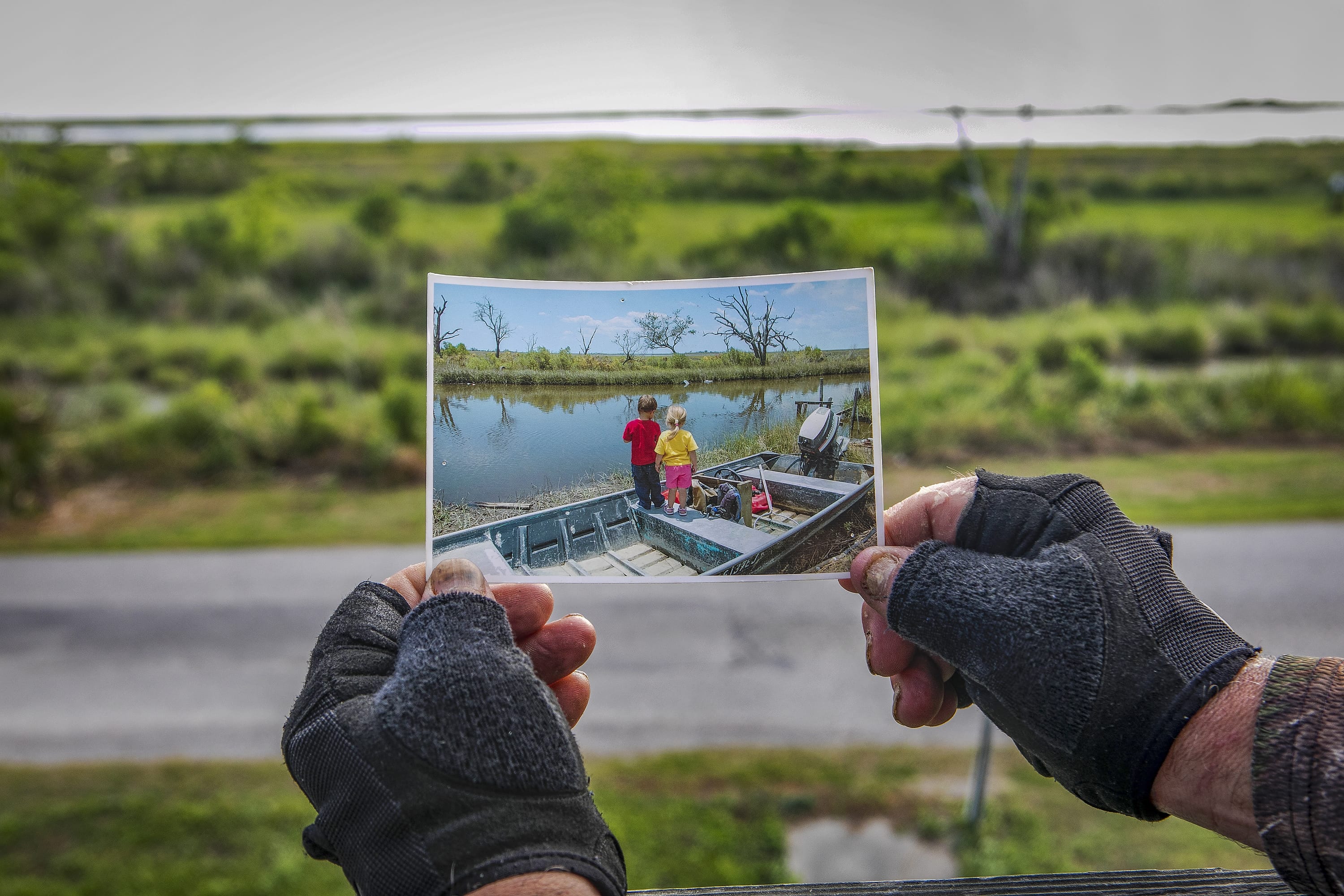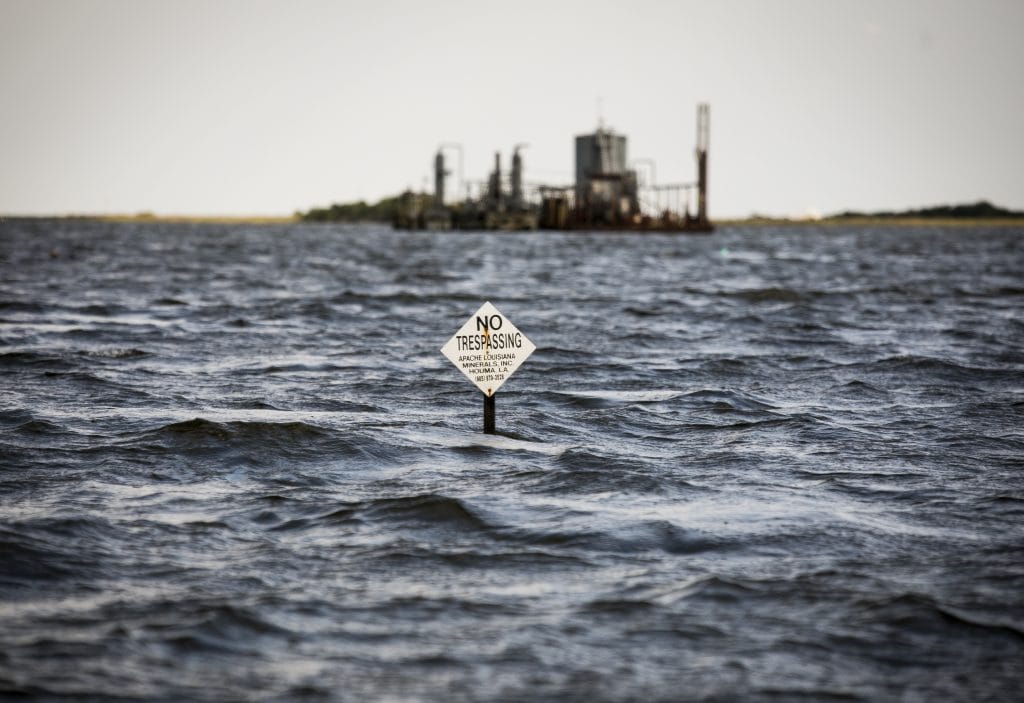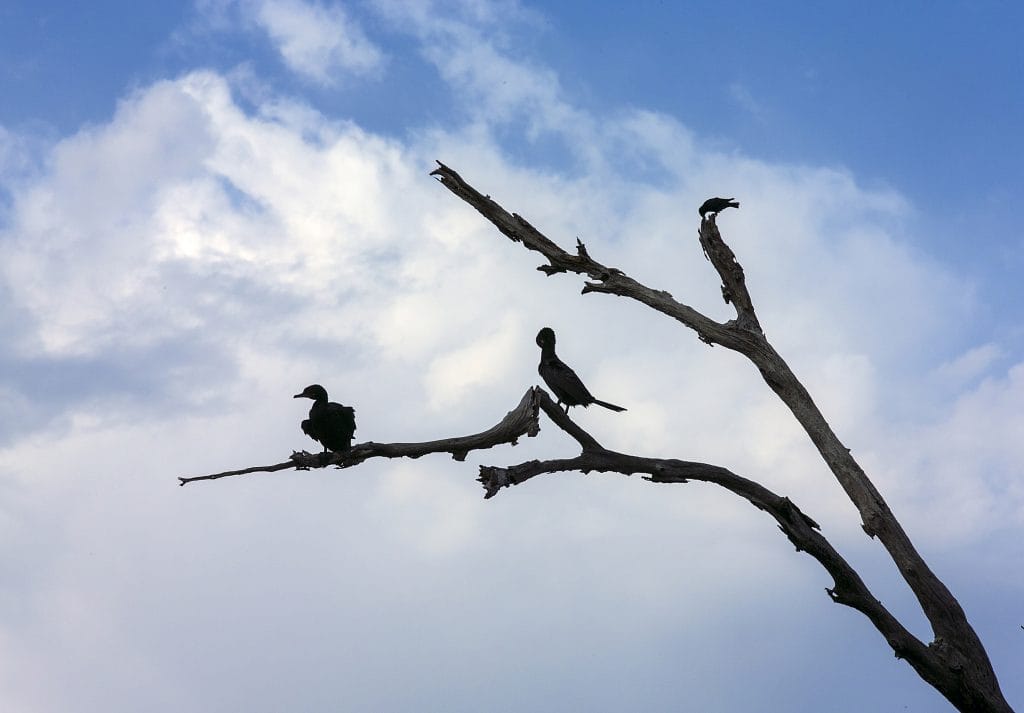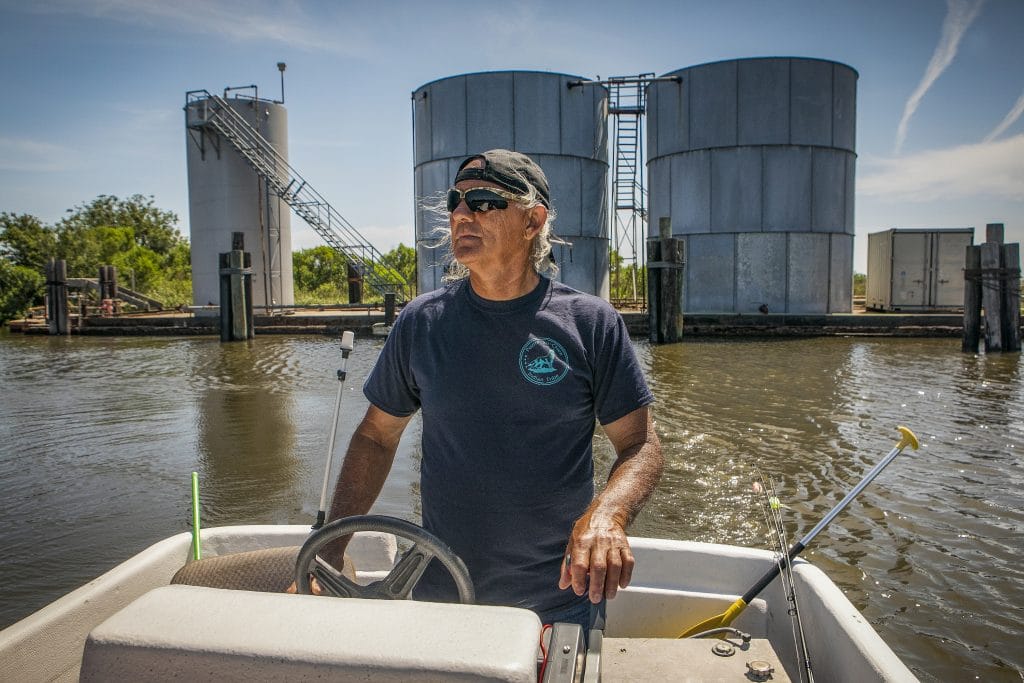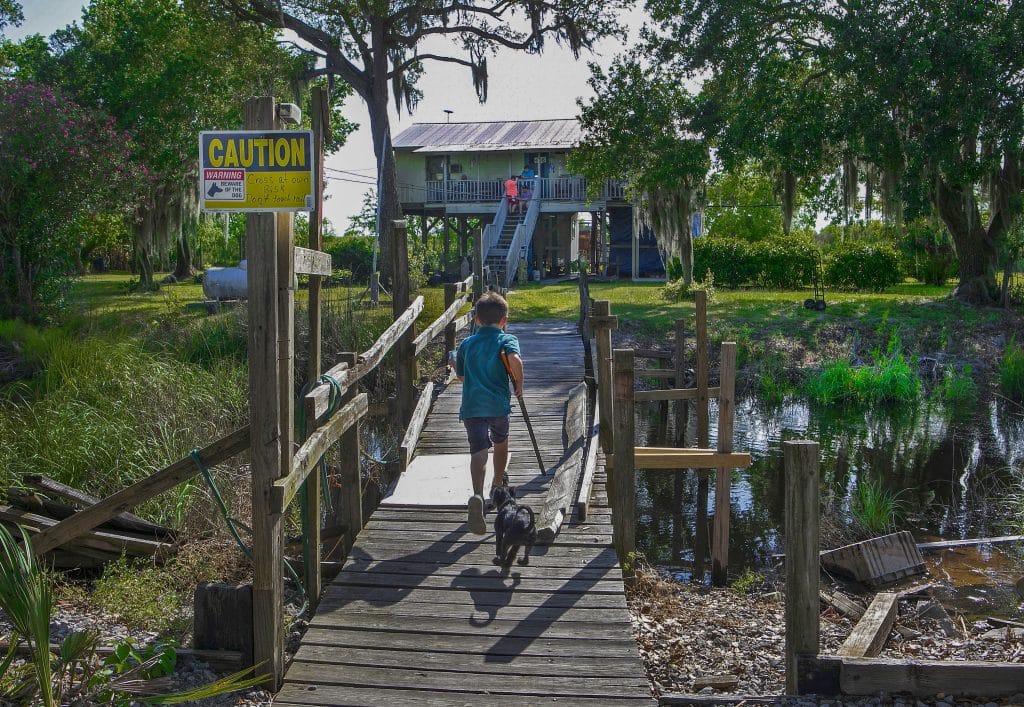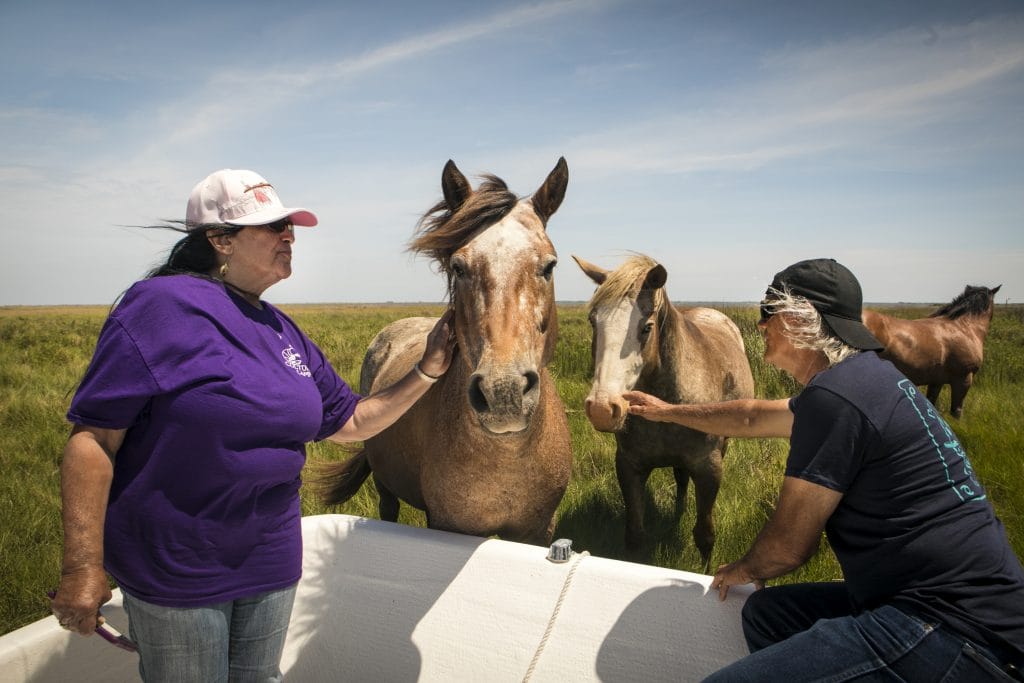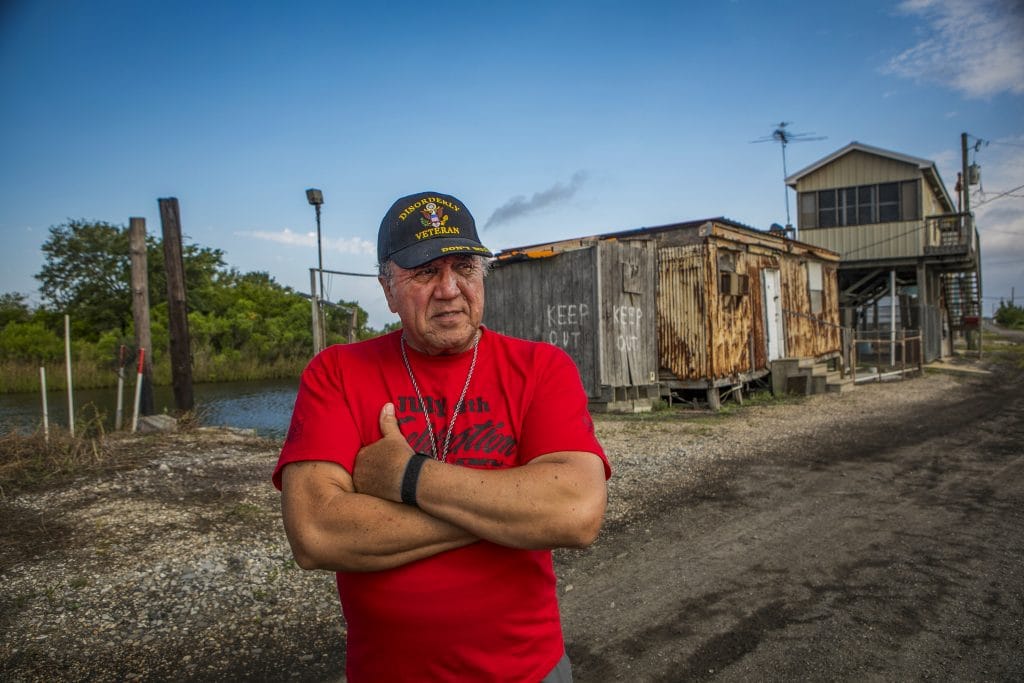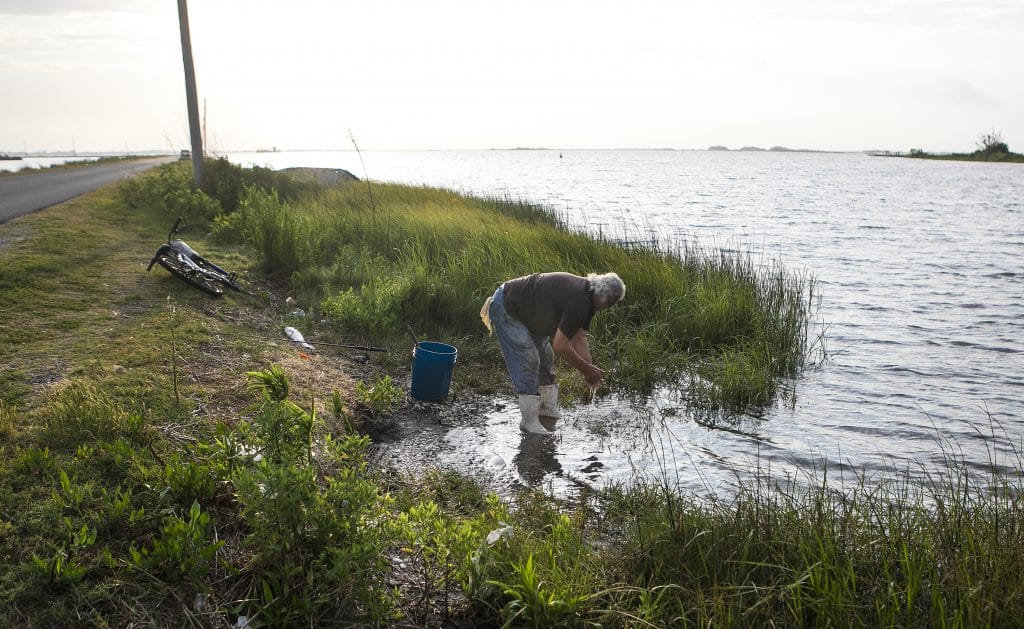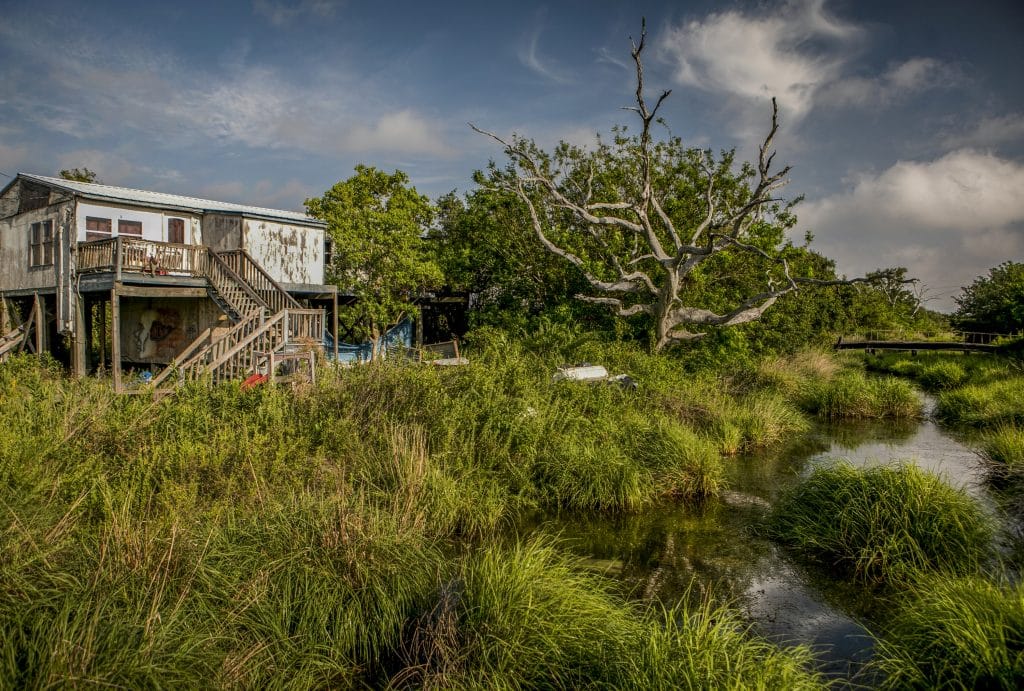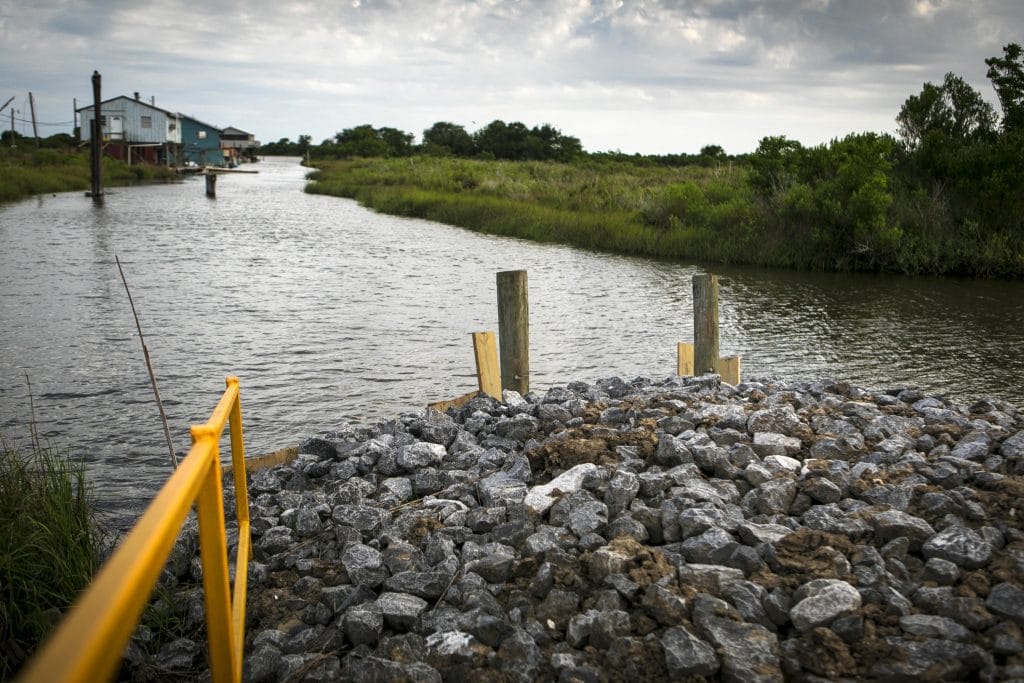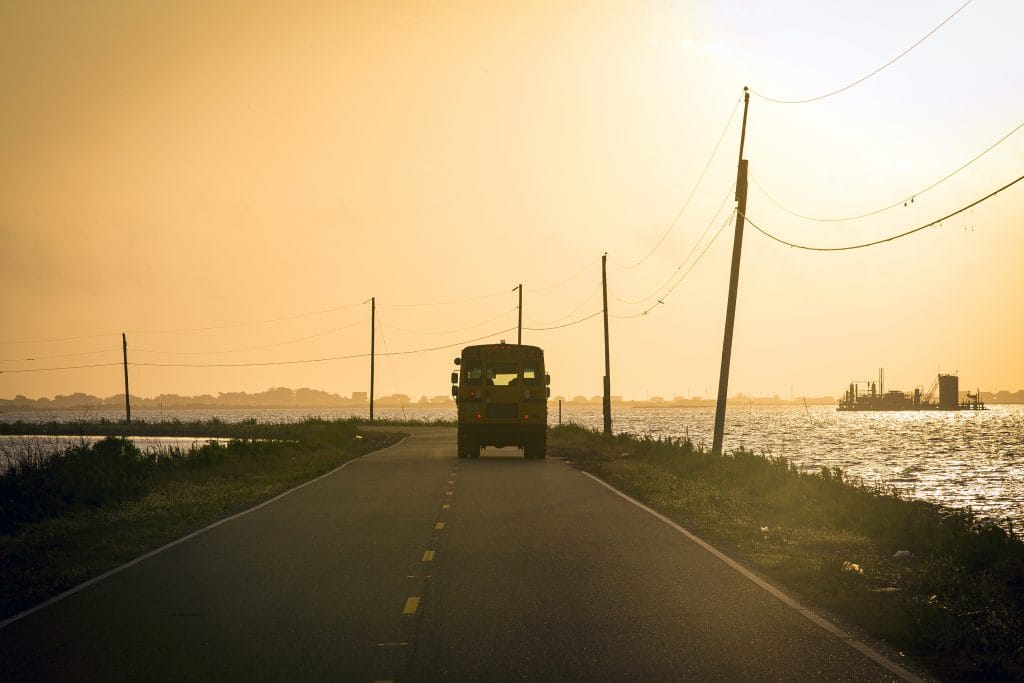The Inhabitants of the Isle de Jean-Charles the first climate refugees in USA ?
While the orange light is still shimmering on the ground, the school bus stops for a moment at the side of the narrow road. The students get on and then the bus leaves for its destination, Pointe-au-Chien Elementary School.
The road, an arm of land a few meters wide, is often flooded, but it is the only way to get to the school on the small island. In the distance, an installation of an oil company reminds us that these daily trips are doomed. Sooner or later, the whole island will disappear, making its inhabitants the first American climate refugees.
Marie-France Coallier, photojournalist for the newspaper Le Devoir, was sent to cover three stories in Louisiana, USA. One of them dealt with the impact of climate change on the Island of Jean-Charles and its community.
This stretch of land located in the bayous of the parish of Terrebonne South off the coast of Louisiana is the home of the Biloxi-Chitimacha-Choctaw tribe. The Biloxi-Chitimacha-Choctaw tribe made this area their territory after being displaced by the policies of the Indian Removal Act. Proposed by President Andrew Jackson in 1830, this law ordered the expulsion beyond the Mississippi River of 60,000 Amerindians who lived between the thirteen founding states and the Mississippi River.
Since its deportation, the French-speaking tribe has reappropriated these few miles of land, has invested this land and cultivated it.
Today their territory is sinking into the sea, disappearing before their eyes. The island is threatened by many environmental problems. Coastal erosion, lack of soil renewal and salt water intrusion into the water table caused by dredging by oil and gas companies are all factors threatening the survival of the area.
In short, the Louisiana archipelago loses the equivalent of a soccer field underwater every hour. But the island of Jean-Charles is one of the most at risk. Already, several inhabitants have left the island, tired of the annual floods and hurricanes. In 1955, there were about three hundred of them living there, today there are only about forty.
As Marie-France explains, the situation is so precarious that the state has proposed relocating the inhabitants: “There was a relocation plan made by the state of Louisiana to allow them to go live a little further north, in the town of Houma. But many of them are resisting. The chief of the tribe wants to prevent the spread of the population throughout southern Louisiana. I think we really want to preserve their heritage, their culture and their tradition.
If the island of Jean-Charles is a precursor in the United States, the phenomenon of climate refugees is destined to grow. According to the World Bank, by 2050, 143 million people could be forced to relocate due to rising waters around the world.

